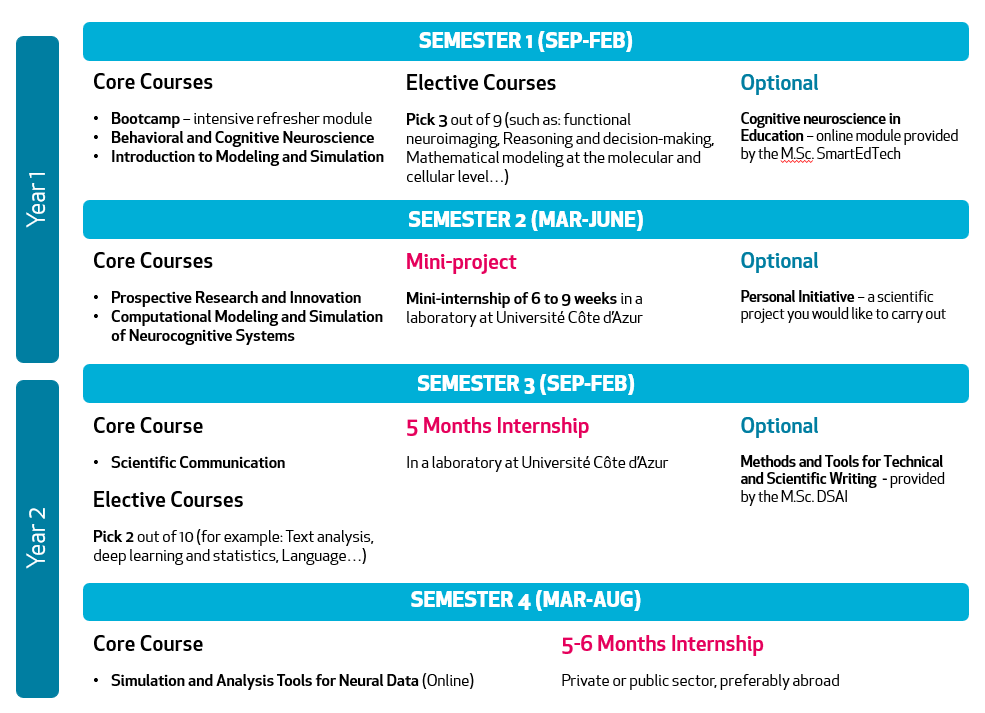Structure and course details
The study program is built over 2 years and offers a variety of core and elective courses. It also includes 1 mini-project and 2 internships.
The first year starts with a refresher module: the "bootcamp" which aim is to bring together students who have completely different backgrounds. The main goal is that at the end, students learn not only from their professors, but also from each other, each of them having their very own area of expertise. The subjects of the bootcamp cover statistics and probability, programming and simulation, linear algebra, differential equations, but also an introduction to cognitive science (including neuroscience).
The rest of the program will offer various courses, and students are free to build their own curriculum, having 10 different electives to choose from. The list and program structure are pictured below.
Finally, we enable students to gain autonomy and a real research experience with multiple internships. Students will start with a short "mini-project" during their second semester, paving the way to two longer internships during the second year. This complementary approach of theory and application allows students to define their research interests and to deepen their knowledge in the area of their choice.
Finally, we enable students to gain autonomy and a real research experience with multiple internships. Students will start with a short "mini-project" during their second semester, paving the way to two longer internships during the second year. This complementary approach of theory and application allows students to define their research interests and to deepen their knowledge in the area of their choice.
7 core courses
- Bootcamp (year 1)
- Introduction to modeling in neuroscience and cognition (year 1)
- Behavioral and Cognitive Neuroscience (year 1)
- Prospective research and innovation (year 1)
- Computational modeling and simulation of neurocognitive systems (year 1)
- Scientific communication (year 2)
- Simulation and Analysis Tools for Neural Data (year 2)
Download the syllabus
10 electives (5 to choose in total)
- Stochastic models in neurocognition and their statistical inference
- Multiple timescale dynamics in neuroscience
- Functional neuroimaging and data processing
- Mathematical modeling at the molecular and cellular level
- Text analysis, deep learning and statistics
- Knowledge, intelligence and expertise
- Reasoning and decision-making
- Language
- Data collection methods and statistical analysis
- Foundations of Deep Learning (M2 only)
Additional Skills:
- Cognitive Neuroscience in Education (MSc SEdT)

















